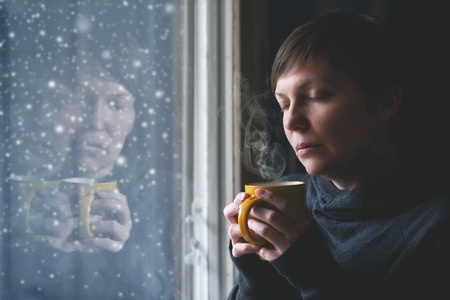 Depression can be a terrible disease and one that thousands of people nationwide suffer from, some chronically. The thing with depression is that there can be many factors which can cause it or help exacerbate its effects including the dim light of winter. The common treatments for depression include counseling and a slew of anti-depressive medications, many of which still do not have great effectiveness data. They are still probably the first line option that most people should try (your primary care doctor or a specialist should really be making the decision), but for many, these options will end in treatment failure.
Depression can be a terrible disease and one that thousands of people nationwide suffer from, some chronically. The thing with depression is that there can be many factors which can cause it or help exacerbate its effects including the dim light of winter. The common treatments for depression include counseling and a slew of anti-depressive medications, many of which still do not have great effectiveness data. They are still probably the first line option that most people should try (your primary care doctor or a specialist should really be making the decision), but for many, these options will end in treatment failure.
Unfortunately, we are still in the early stages of really understanding the brain and the diseases that impact it, so we don’t yet have great solutions to treat diseases like depression. That does not mean, however, that there are not many options which can be tried and have shown effectiveness in various groups. One potential therapy for the disease that is growing in popularity is light therapy. Given that the darkness of winter can cause seasonal depression, it may be possible that exposure to light has the opposite impact. A small study done in Canada has produced these results and will surely drive future research in the arena.
Light therapy was superior to placebo in this study, with the most effectiveness being seen in the light therapy plus antidepressant group of the study. The antidepressant used in this study was fluoxetine 20mg, one of the most common antidepressants that is regularly prescribed. The light therapy consisted of exposure to a fluorescent light box for 30 minutes each morning. Given that this can easily be simulated by other means, it may be a cheap option that can be added on to initial depression therapy at a relatively low cost and without many additional side effects, etc. If it turns out that it can even improve a small subset of the population’s disease, there is huge potential for this intervention given the cost-benefit assessment. If you are suffering from depression and have not had any success with conventional treatments (or are currently on traditional medications), you may want to ask your doctor if you can try some form of light therapy to help with your disease.
Light therapy is just the latest in what is hopefully a long line of innovations in the treatment of depression as we learn more about the biology of the brain and depression.









